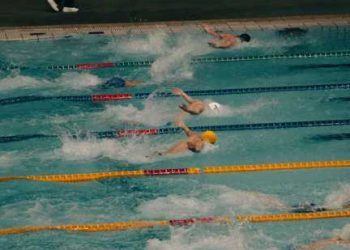Sports medicine is a broad field that deals with the prevention, treatment, and rehabilitation of injuries related to athletics and other physical activities. It encompasses a wide range of disciplines ranging from sports psychology, nutrition, strength and conditioning, orthopedics, and physical therapy, among others.
The field of sports medicine has grown significantly over the years due to the increasing popularity of sports and the rising demand for high-performance athletes. To help you better understand sports medicine, we have compiled the ultimate guide to sports medicine.
Understanding Sports Injuries and Prevention Strategies
Injuries are an inevitable part of sports, but that doesn’t mean you can’t prevent them. Knowing common sports injuries, their causes, and such as sprains, strains, and fractures, can help you take steps to prevent them. Preventive measures include stretching before and after exercise, wearing proper protective gear, proper nutrition and hydration, and proper rest and recovery.
Diagnosis and Treatment of Sports Injuries
If you do sustain an injury, it’s essential to seek medical attention from a sports medicine professional as soon as possible. They will evaluate you to diagnose the injury and provide appropriate treatment. Diagnosis may include physical exams, imaging tests (like X-rays, MRI, or CT scan), and lab tests. Treatments may vary depending on the injury, but they may include medication, physical therapy, braces, or even surgery.
Sports Medicine Specialties
There are many specialities in sports medicine, each focusing on a specific aspect of athletic health. Some specialties in sports medicine include orthopedics that specialize in musculoskeletal injuries, cardiology that monitors cardiovascular health, nutritionists and dieticians who provide dietary advice, psychologists who work with athletes to improve mental performance.
Recovery and Rehabilitation
Recovery and rehabilitation are essential for restoring athletes to their pre-injury condition. Recovery involves taking time off the sport to rest and allow the body to heal. Rehabilitation steps are designed to strengthen affected areas and return the body to full strength. Physical therapy and rehab are critical in this stage because they ensure that the body heals correctly and prevents future injuries.
Performance Enhancing Techniques
Sports medicine is not just about injury prevention and is also concerned with optimizing an athlete’s performance. Performance enhancing techniques are used to help athletes improve their strength, endurance, and agility. These techniques may include strength and conditioning programs, nutritional counseling, and mental training.
Sports Medicine and Mental Health
Mental health disorders can be serious challenges for athletes, and sports medicine provides mental health support. Sports psychology is a burgeoning field that helps athletes deal with the pressures of their sport, including anxiety, depression, and mental blocks.
In conclusion, sports medicine is an essential field that anyone interested in sports must understand. From injury prevention to diagnosis, treatment to rehabilitation, there are many aspects to sports medicine, each with an essential role in maintaining the health and performance of athletes. Ultimately, if you are an aspiring athlete or interested in sports, it is essential to make sports medicine a part of your training and advancement.













